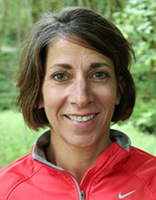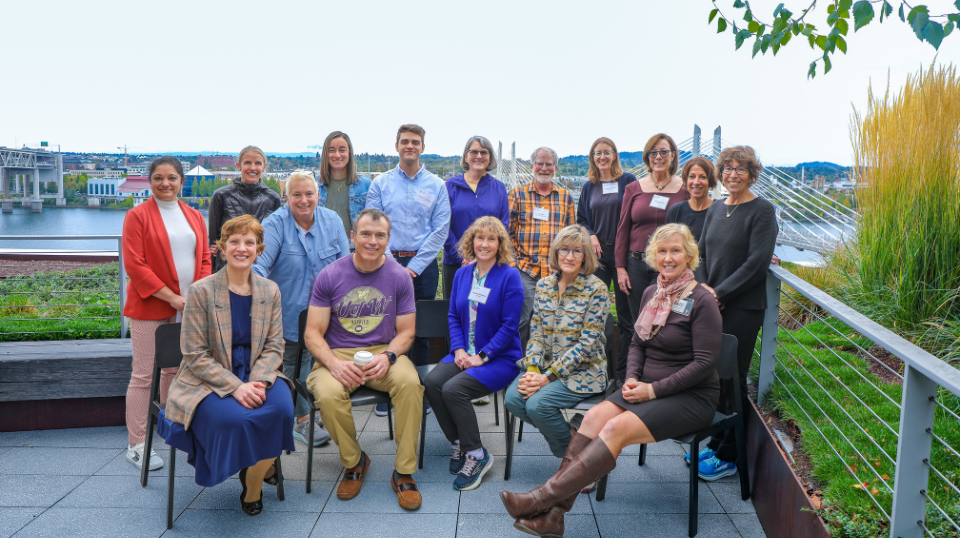Exercise as medicine for cancer

Kerri Winters-Stone, Ph.D., is an exercise physiologist at the OHSU Knight Cancer Institute, one of the top-ranked cancer centers in the nation. She develops targeted exercise strategies to help people with cancer manage symptoms, overcome side effects, maximize quality of life, and potentially, improve survival.
Dr. Winters-Stone has led more than 15 clinical trials examining the benefits of exercise training for numerous outcomes, including physical functioning, fall prevention, bone health, emotional well-being and quality of life in over 2,000 cancer survivors. Some studies also include caregivers who can use exercise to relieve the physical and emotional toll of caring for someone with cancer.
The Winters-Stone Exercise Lab has received more than $25 million in funding since 2003 from the National Cancer Institute, the American Cancer Society, Susan G. Komen, and the Livestrong and Movember foundations. Most recently, she received a $2.5 million grant from the National Cancer Institute to study the benefits of a partnered exercise program for couples coping with cancer.
Dr. Winters-Stone is a professor in the Division of Oncological Sciences in the OHSU School of Medicine and leads the division’s Cancer Population Science Program. She also co-directs the Community Partnership Program and the Cancer Prevention and Control Program at the OHSU Knight Cancer Institute.
OHSU hosts first-of-its-kind meeting focused on older cancer survivors

Kerri Winters-Stone, Ph.D., convened a three-day expert panel meeting at the Knight Cancer Research Building in Portland to develop the first set of consensus-based exercise guidelines specific to older cancer survivors.
The panel included researchers, clinicians, patients and survivors with wide-ranging areas of expertise, from geriatrics, geriatric oncology, rehabilitation, physical therapy, and exercise physiology, along with a patient advocate and fitness professional. Co-investigators on the study include OHSU’s Gabrielle Meyers, M.D., and Elizabeth Eckstrom, M.D., M.P.H.
The initiative is called “Advancing Capacity to Integrate Exercise into the Care of Older Cancer Survivors”, shortened to “ACES.” The ACES work stems from an NCI-funded grant Winters-Stone received to develop infrastructure that can advance research and practice in cancer and aging, and she says this is one of the key projects to emerge from that effort.
Learn more
How does exercise and resistance training help men with prostate cancer?
Hear how survivors and care providers are building systems of support and developing ways to stay well in body, mind and spirit.
"We have an obligation to start moving exercise into the standard of care for cancer patients.”
- Kerri Winters-Stone, Ph.D.
Professor, Division of Oncological Sciences, OHSU School of Medicine
Interested in learning more or getting involved? We'd love to connect. Email our team at exercise@ohsu.edu or call us at 503 346-0444.